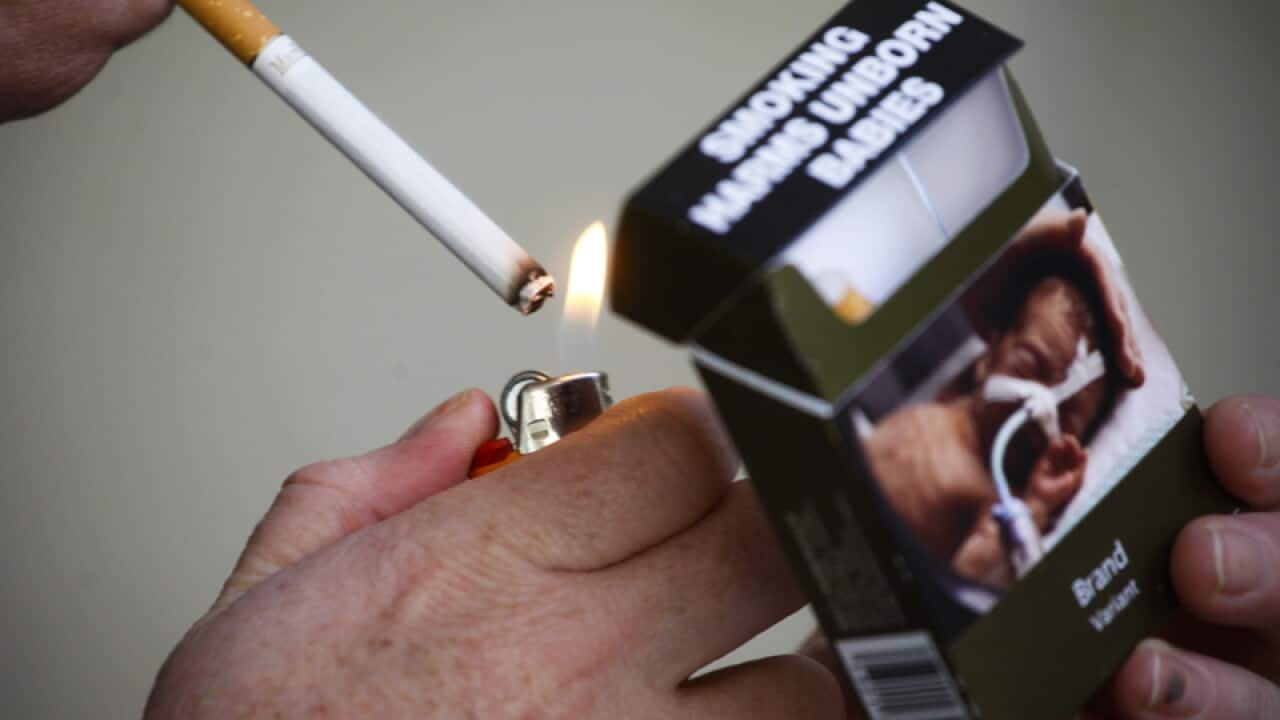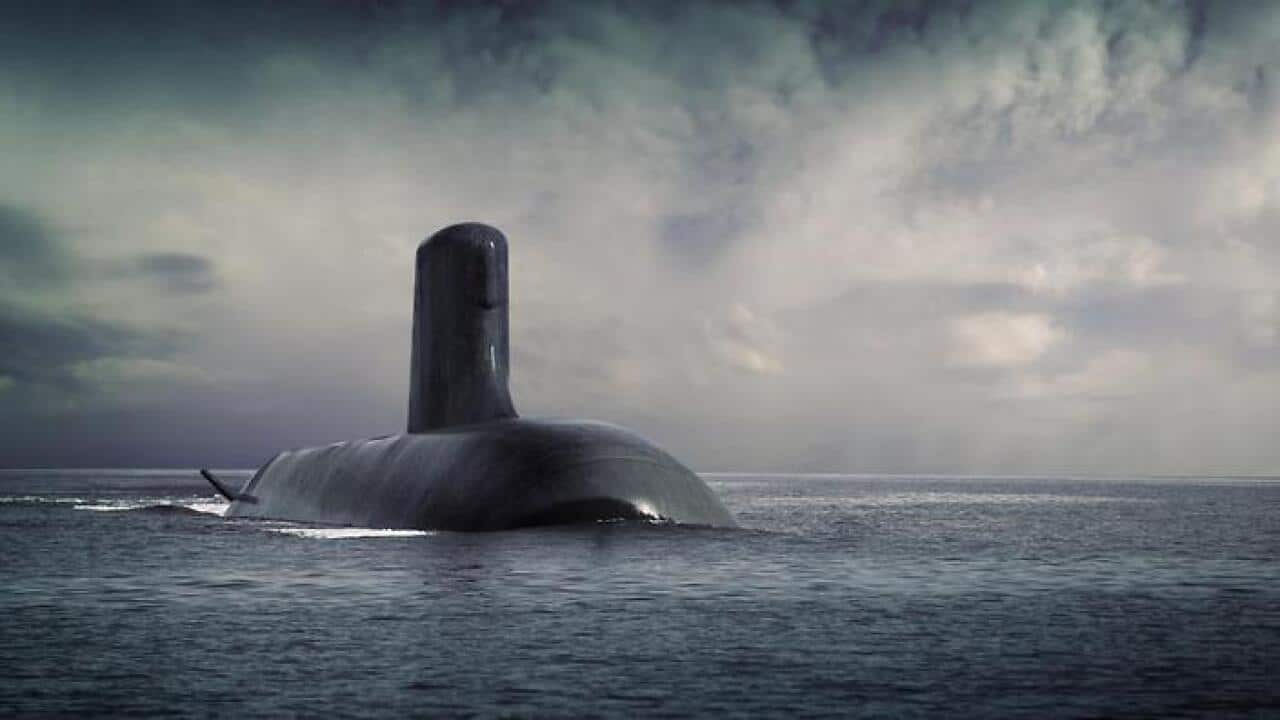The treasurer's budget today comes just days out from Prime Minister Malcolm Turnbull firing the starting gun for a July 2 election.
But Mr Morrison insists the focus tonight will be on jobs and growth rather than being a typical pre-election budget.
He also insisted his first budget will be a national economic plan for the country with a focus on jobs and growth.
"Sweeteners won't change the circumstances for the people who are facing difficult times in our economy," he told reporters as he arrived at Parliament House.
Mr Morrison said the difference between the government and opposition was Labor's intention to increase taxes to chase higher levels of spending.
He foreshadowed revenue-raising measures to crack down on multinational tax avoidance and closing off generous superannuation concessions on high-income earners.
"We'll reinvest that back into the productive capacity of our country by ensuring a lower tax burden, particularly for small and medium sized businesses, to ensure we continue to drive growth," he said.
"It's real money that will go to real schools and real students, not the sort of phoney accounting we saw in the union movement that Labor seems to be modelling their approach on."
He insisted the budget will include a clear path towards balanced books.
"You don't get to a budget balance and be able to sustain it by just ramping up taxes and ramping up spending," he said.
Prime Minister Malcolm Turnbull has promised Tuesday's budget will aim to make the tax system fairer and more sustainable
But tax experts are concerned the year-long review of Australia's 100-odd taxes will be no more than tinkering at the edges
Treasurer Scott Morrison's first budget will be a "national economic plan" to drive growth and jobs.
Related reading

Explainer: How the federal budget's shaping up
It is expected make changes to middle-income tax brackets to fend off bracket creep impacting thousands of workers over the next couple of years.
Superannuation tax concessions are expected to be reined in for the rich, while there will be money for infrastructure, schools and health.
There are expected to be planned cuts to the company tax rate, funded by a further crackdown on multinational tax dodgers.
Greg Travers, tax director at William Buck Chartered Accountants, believes while a company tax cut will be welcomed, Australian companies are still seeking genuine reform and not a "piecemeal approach".
"Our experience and research shows that businesses would prefer a reduction in tax compliance costs over a reduction in the tax rate," he told AAP.
Related reading

Infrastructure cash splash welcomed: Baird
He also doesn't want to see a multitude of new tax laws to crack down on multinational tax avoidance.
"The most sensible budget measure relating to multinational avoidance would be to increase the funding of the Australian Tax Office to enable it to better enforce the existing laws," he said.
Before Mr Morrison hands down his budget, the Reserve Bank may cut the cash rate to a record 1.75 per cent at its board meeting in the wake of last week's consumer price index that showed the economy has sunk into deflation, a sign of weak demand.
How the federal budget's shaping up
There is much speculation about what will, and won't be included in this year's federal budget.
Below is an explainer of how the May 3 federal budget is shaping up.
What we know
- There won't be a fistful of dollars as the government lives up to its promise of living within its means.
- Prudence, fairness and responsibility will be the catchwords.
- Measures will be included to boost jobs and growth as the economy transitions from the mining investment boom.
- The much-touted tax reform package will be included.
What won't be there
- Changes to tax breaks for property investors, aka negative gearing.
- Changes to the capital gains tax discount.
- A rise in the rate of GST, or broadening its base.
What will be there
- A reduction in the overall tax burden.
- Modest improvement in the budget bottom line.
- "Sensible" tax changes to prevent bracket creep for people earning over $80,000.
- Confirmation the budget repair levy on high-income earners will end on July 1, 2017.
- $5 billion over four years for a subsidised public dental scheme.
- $2.9 billion extra for public hospitals, stemming from COAG agreement.
- $1.2 billion extra from 2018 for schools aimed at literacy and numeracy checks.
- $230 million cyber security strategy.
- $118 million over two years to support disabled children in schools.
- $100 million domestic violence campaign.
- $21 million in health care for chronic conditions.
- Brought-forward upgrade of Adelaide-Tarcoola rail line.
- New drugs on the Pharmaceutical Benefits Scheme.
- Extra aged-care places.
- $1.7 billion for the Sydney Metro project.
- $167.3 million for a regional road freight corridor in NSW.
- $98.4 million to increase the capacity of Sydney's rail network.
- $78.3 million for Parramatta light rail.
- $60 million for "smart motorways" in NSW.
- $52.2 million to clear NSW road pinch points.
- $2.4 billion for Victorian infrastructure including $877.5 million for the Melbourne Metro tunnel and Murray Basin rail, plus money for Monash Freeway, Western Ring Road, regional roads.
- $750.8 million for WA infrastructure including the Forrestfield-Airport link and $260.8 million for the Perth freight link.
- Funding for Queensland's Ipswich Motorway.
- Timetable for phased-in cut to the company tax rate of 30 per cent.
- Further crackdown on multinational tax dodgers.
- $150 million security package including heavily armed security specialists guarding police buildings.
- $5 million annual cut to ABC
What's hinted at
- Paring back superannuation tax concessions for high-income earners by lowering the 30 per cent tax on concessional contributions to $180,000 from $300,000, and helping for those on low incomes.
- Further crackdown on welfare rorters.
- Incentives for state governments to get private sector involved in road, rail and port projects, and unlock land for housing.
- $1 billion for military role in Afghanistan, Iraq and Middle East, plus $1.4 billion in new defence spending.
What voters want (Essential Poll)
- Increased health and education funding.
- Personal income tax cuts.
- Reduced superannuation tax concessions for high earners.
- Increased tax on cigarettes.
What business wants
- The budget back in balance in five years.
- A path to a cut in the company and personal income tax rates.
- Infrastructure planning and skills training.
What the economy is doing
- Growing at its fastest pace in two years.
- A benign inflation outlook has turned to deflation risking an interest rate cut; unemployment rate remains close to six per cent; wages growth at its slowest in almost two decades.
- Iron ore prices touched $US70 ($A92) per tonne in recent weeks compared to $US39 assumed in the mid-year budget review, a positive for national income.














